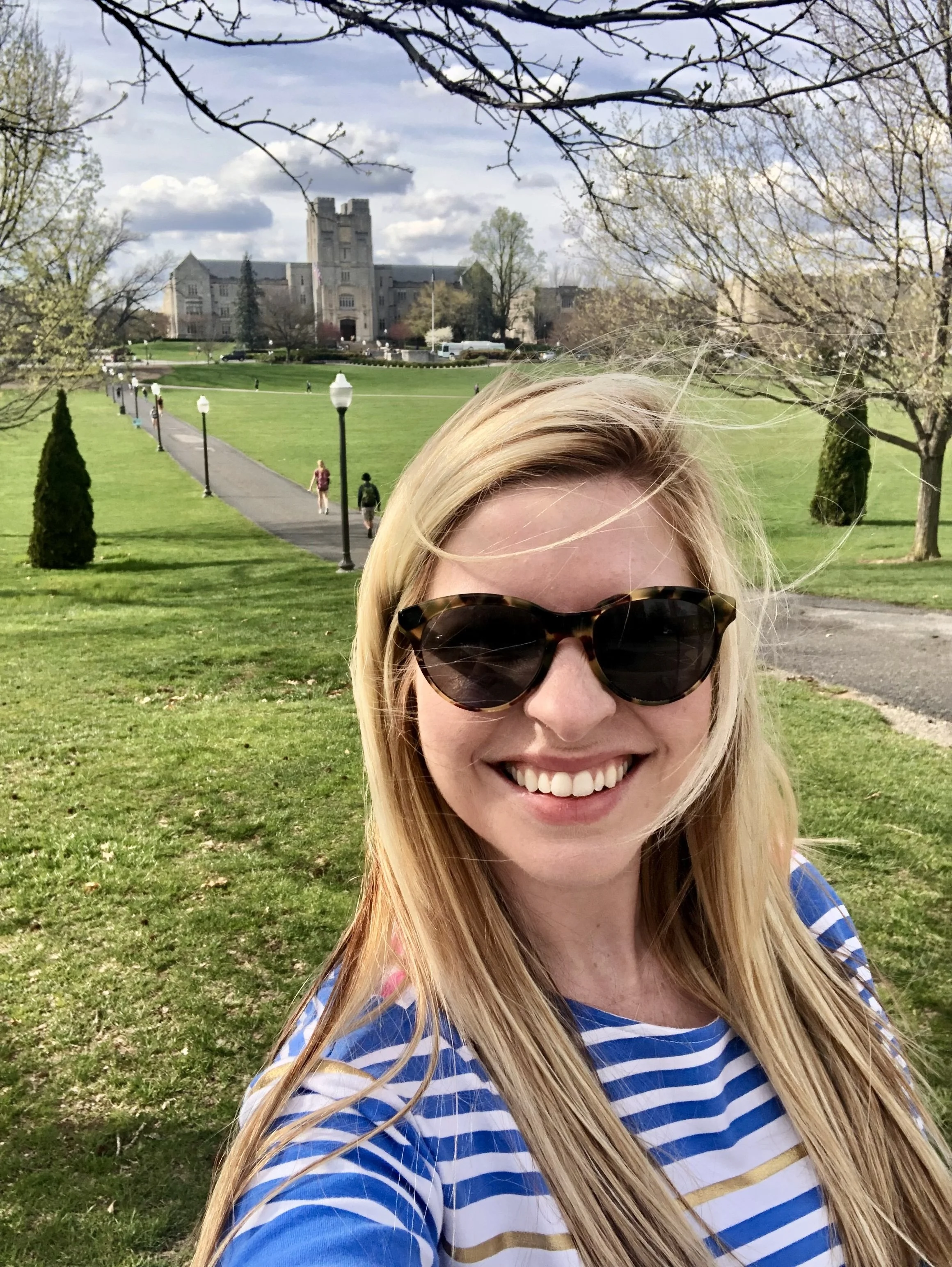Just a couple of years ago, ChatGPT was mostly a fun tool – something you’d use for quick research or to generate silly pictures of your dog in a space suit (don’t worry, your secret’s safe with us). But it didn’t take long for students to start using it for more serious tasks – like writing their English or history essays. That’s where the trouble began.
Last week, we shared that Virginia Tech is now using an AI tool alongside human reviewers to evaluate college essays. Officially, it’s about efficiency – but let’s be real: they’re almost certainly also trying to catch AI-generated writing. And if Virginia Tech is doing it, you can bet other colleges are, too, even if they’re not saying so out loud.
So here’s our message this week: using generative AI to write your college essay isn’t just unethical. It’s risky. It’s detectable. And it’s a missed opportunity to show who you really are.
Still not convinced? Then hear this: you’re going to get caught.
We’ve seen it firsthand. Our essay coach Alan, who also teaches at the University of Maryland, has already flagged dozens of AI-written assignments. In every case, the student either had to start over or received a zero. And admissions officers are even more tuned in. You might think you’re being clever with your prompts – “write like a high school student who’s not great at writing” – but the result always gives itself away.
More importantly, leaning too hard on AI shortcuts robs you of something essential: the chance to think deeply, reflect honestly, and grow as a writer. Studies are already linking ChatGPT use to declines in memory and critical thinking – and let’s face it, nobody wants their essay to be called “soulless.”
We’re not here to bash ChatGPT, though. It’s an amazing tool when used the right way. So let’s break down when it helps, and when it really, really doesn’t.
THE BAD
Losing Your Voice
This might sound obvious – don’t have ChatGPT do your homework – but it’s worth unpacking. There are plenty of reasons why asking AI to write your essay is a bad move, whether it’s for school or college applications. The biggest one? It’s incredibly easy to spot when something wasn’t written by a student.
You might try to be clever by giving ChatGPT specific style prompts, but the results always include giveaways – certain phrases, word choices, or patterns that teachers, professors, and yes, your essay coaches, will recognize immediately. With college essays especially, your voice is everything. Schools aren’t just reviewing what you say – they’re listening to how you say it. And if the tone feels off or overly polished, it raises red flags.
That’s why our essay process is built around preserving your unique voice. We’ll help you polish your drafts, but we won’t rewrite you. Your structure, your examples, your phrasing – these are what help your personality and perspective shine.
Impairing Your Memory and Grades
Here’s something you might not expect: studies show that over-reliance on tools like ChatGPT can impair memory and lead to a decline in your grades. That’s because if you didn’t write it, you probably won’t remember it. And in school, that matters.
Teachers often design assignments to build on one another. So if you submit AI-generated work early on, you may find yourself lost when later assignments rely on what you supposedly “wrote.” Plus, once you start leaning on AI because you’re short on time, it can become a habit – and that leads to even more procrastination and weaker performance on things you can’t outsource, like in-class writing or timed exams.
At DCCC, we can see this in how it hurts our progress with students. If you don’t remember what’s in your own essay – because you didn’t actually write it – it’s tough to adapt it for other schools or supplementals. That slows us down, and it makes your application less compelling.
Sounding Like a Robot
Let’s say you wrote a draft on your own but didn’t love how it sounded. You plug it into ChatGPT and ask it to make it better. That seems okay – you wrote the original, right?
The problem is that ChatGPT doesn’t make light edits. It rewrites everything. The version it gives back might sound cleaner, but it also tends to sound flat, like a grammar textbook wrote your essay. It strips out the small quirks and “realness” that make your writing yours. Creativity and personal expression matter just as much as accurate grammar, especially in essays meant to show who you are.
Doing All Your Research in One Place
By now, ChatGPT may feel more helpful than Google when you’re looking for quick info. But unlike even Wikipedia, there’s no human vetting what it says. It pulls content from popular sources (accurate or not) and often presents it with authority.
That means if you rely on it for college research or academic facts, you could easily get outdated or misleading information. And when it comes to writing college essays, that’s a real problem. We’re not saying don’t use ChatGPT to help start your research – but if you don’t verify what it gives you, you’re asking for trouble.
That’s not to say you can’t use generative AI to support your research – you can. But there’s a right way to do it, and I’ll share that below!
THE GOOD
A Head Start on Your Research
Generative AI tools like ChatGPT can be a great way to get your bearings on a topic, especially when you're not sure where to begin. Want to explore colleges with strong programs in marine biology? Need a few themes to unpack in that obscure art film for your “Intro to Cinema” class? ChatGPT can help you gather some early ideas, summarize key points, and generate lists that can jumpstart your process.
But – and this is important – the information isn’t always accurate or current. ChatGPT can pull from outdated sources, miss school-specific details, or rely on oversimplified explanations. If you’re researching campus traditions or program offerings, for example, you might get answers that are no longer true. Plus, AI can’t access most scholarly sources or anything behind a paywall, which means you’re often missing out on the most recent or credible research.
So use ChatGPT to get started – then dig deeper. Check official websites, use databases for academic work, and always fact-check anything you plan to include in your writing.
Checking Your Grammar the Smart Way
Not sure whether you’ve used a semicolon correctly? Wondering if that sentence sounds too clunky? This is where ChatGPT and tools like Grammarly shine. You can drop in a sentence or two and ask for quick feedback. You can even prompt it to give you a list of suggestions.
But here's the line to watch: don’t ask ChatGPT to revise entire sentences or paragraphs, or worse, to rewrite your essay. It will almost always go too far, making big changes that strip out your tone and voice. It’s great for suggesting issues you can change yourself, but the more you let it alter your words, the more generic and robotic your writing will feel – especially to someone trained to spot it!
Bottom line: use AI to clean up the small stuff. But when it comes to tone and flow, trust yourself – and your coach.
Getting Unstuck
We’ve all had those moments when a word is right on the tip of your tongue or you’re searching for a new angle but hitting a wall. That’s where ChatGPT can really help.
You can try prompts like:
“What’s a word that means someone who’s driven and determined, but sounds kind of like ‘suspicious’ and maybe starts with an ‘a’?”
Answer: ambitious. Nailed it!
Or, let’s say you need help developing a supplemental essay idea. Try something like:
“I worked as a camp counselor this summer and dealt with some difficult middle schoolers. I want to write about it for a personal growth essay – any ideas for a theme?”
ChatGPT might suggest words like resilience, patience, or leadership, along with possible moments you could explore. That’s a win. Of course, you can’t just borrow its examples and pass them off as your own – don’t even go there – but it can help spark ideas that are true to your story. Think back to your actual experience and ask yourself: “Do I have a different understanding of leadership? Were there moments when I was incredibly resilient under pressure?”
So if you’re stuck, don’t panic. Use ChatGPT as a brainstorming buddy, then reflect honestly and write from your own experience!
ChatGPT and other generative AI tools aren’t going anywhere – and that’s not a bad thing. Used well, they can be incredibly helpful.
But what we need now is a deeper understanding of when and how it is appropriate to use these tools – and when we need to trust ourselves more as writers. As high school teachers and college professors rush to figure out how to integrate these tools into their classes and teach best practices to their students, we here at DCCC want to remind everyone that it’s never a good idea to ask ChatGPT to write your college essays for you.
Plus, our coaches are pretty amazing at what they do – so trust the process! Use ChatGPT to help come up with some ideas or make some corrections to specific grammar issues, and remember that no matter how bad of a writer you think you are, your honest writing will always sound better than a robot!





